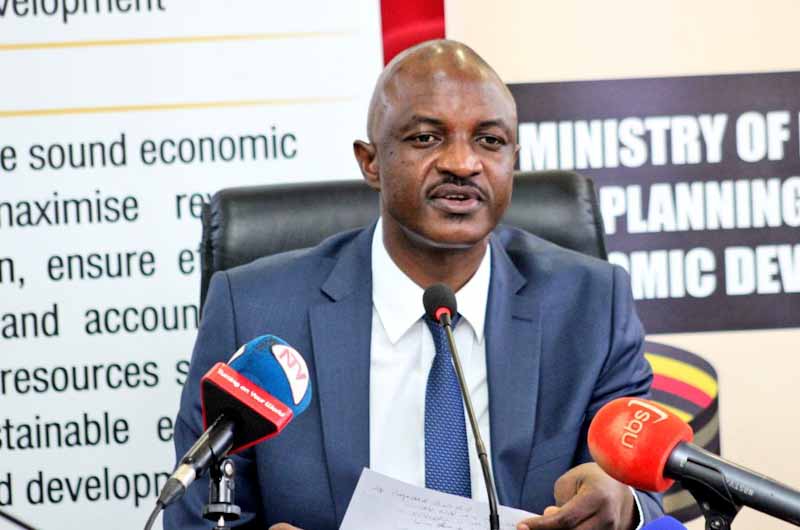Business
PSST Ggoobi clarifies on controversial Coffee Deal
The Permanent Secretary and Secretary to Treasury Ramathan Ggoobi has dismissed as false and misleading claims that the agreement signed between the government and an Italian investor Uganda Vinci Coffee Company Ltd, to build a coffee processing plant in Namanve, shall hurt the coffee value chain by creating a monopoly.
On February 10, 2022 the Minister of Finance Matia Kasaija signed an agreement with the private company privileged access to Uganda’s coffee in addition to other incentives in exchange for the establishment of an US$80m coffee processing plant at Namanve in Kampala.
The agreement has since come under intense criticism as yet another mafia plot to perpetrate economic capture by those in power and impoverish the masses of coffee farmers.
Coffee is Uganda’s biggest crop export and supports millions of small holder farmers across the country.
While addressing claims by critics to the deal, Ggoobi said that the agreement will not drive other coffee dealers out of the business since the investor has capacity to process just 6% of the coffee produced in the country currently.
He said: “How can this be a monopoly when someone has capacity to process just 6% of the current 7 million bags of coffee being produced?”
“There’s no monopoly. We don’t sign agreements that create monopolies or even oligopolies for that matter,” said Ggoobi.
He added that other incentives including tax holidays and subsidised power, given to Uganda Vinci are accessible by other local and international investors, if approved by the Ministry of Finance.
Ggoobi strongly defended the agreement as a necessary step towards the realisation of Uganda government’s industrialization of coffee by ensuring it adds value to the country’s coffee so that it earns value to coffee farmers.
On the alleged exclusive access to raw materials (coffee beans) Ggoobi suggested that Uganda Coffee Development Authority (UCDA) intends to set a price at which coffee will be bought from farmers and processors.
“Government undertook to take reasonable steps to ensure that Uganda Vinci has access to an ample supply of coffee beans for processing into final products.
On Coffee Bean Prices, Ggoobi said: “Uganda Vinci will pay for superior quality coffee beans at a premium price. This price will be determined transparently and shall not be lower than the price approved by the Relevant Authority. This also allows greater competitive pricing that benefits local coffee producers and traders.”
Currently, UCDA does not participate in setting prices of coffee as this is done by international cartels.
What worries many in Uganda now is that the move by UCDA to leave the international coffee trading framework is to allow outfits like Vinci to press down prices of coffee with the help of UCDA, as ties to the international coffee trading system will have been cut.
Critics who surprisingly include ruling government officials say there was no adequate consultation to bring farmers and processors on board to buy into the arrangement.
Others such as former New Vision Managing Director Robert Kabushenga have criticised the deal for offering to support a foreign company to reap the benefits of value addition to Uganda’s coffee instead of supporting local companies to do the same.
Most of the criticism is based on the perception that the government is dealing with an individual – the Italian lady Enrica Belsito Pinetti, who is already failing to deliver on her commitment to develop the Lubowa Specialised hospital – where she already got substantial government guarantees.
Comments



















